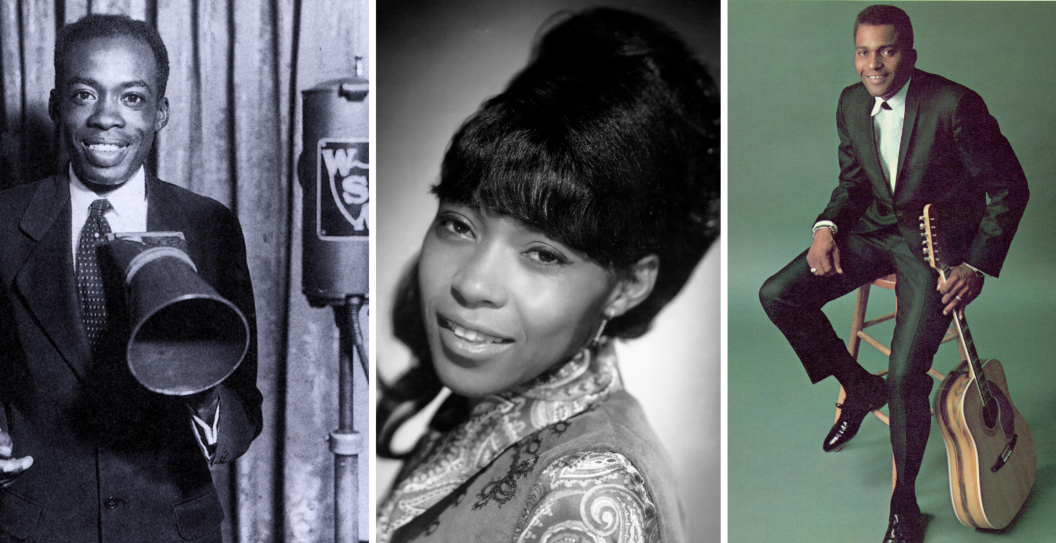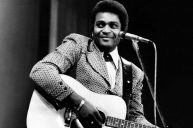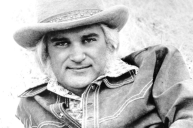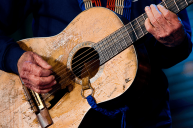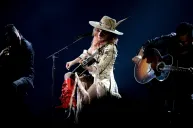For all the beauty, honesty and emotion of country music, the country music industry has all too often failed listeners of the genre by not sharing, or by simply silencing, the stories and voices of the Black country artists who helped create the genre.
Videos by Wide Open Country
In reality, country music owes its most profound roots to Black musicians and artists — such as the ones who taught country pioneer Jimmie Rodgers everything he knew about music. Or the ones who wrote the groundbreaking music that was made mainstream by Elvis Presley. With any justice, country singers such as Mickey Guyton, who has been a favorite of both fans and critics since she stepped onto the scene, will be given the opportunity they deserve.
The false narrative of country music's origins has shifted in recent years, thanks to folks such as Rissi Palmer, a singer-songwriter and host of the Apple Music Country radio show "Color Me Country," which spotlights Black, Indigenous and Latinx artists in country music.
"It's really important to me for everyone ... to feel ownership of this music," Palmer told Wide Open Country in 2022. "It's all of our music. It's the music of the people here in this country. It's the music of all of us. I feel like knowing more about who started it and who these people were and more of these behind-the-scenes, kind of hidden stories, it changes the way it looks and it changes the way you listen and it can expand your your musical palette. All of a sudden it's like, 'Well, let me find out more about Lesley Riddle or let me see if I can find some "Tee Tot" Payne music.'"
Though there are countless Black country singers who've made incredible contributions to country music (and this is by no means a complete list), here are 35 Black musicians who've shaped country music's history and future that every country fan should know.
DeFord Bailey
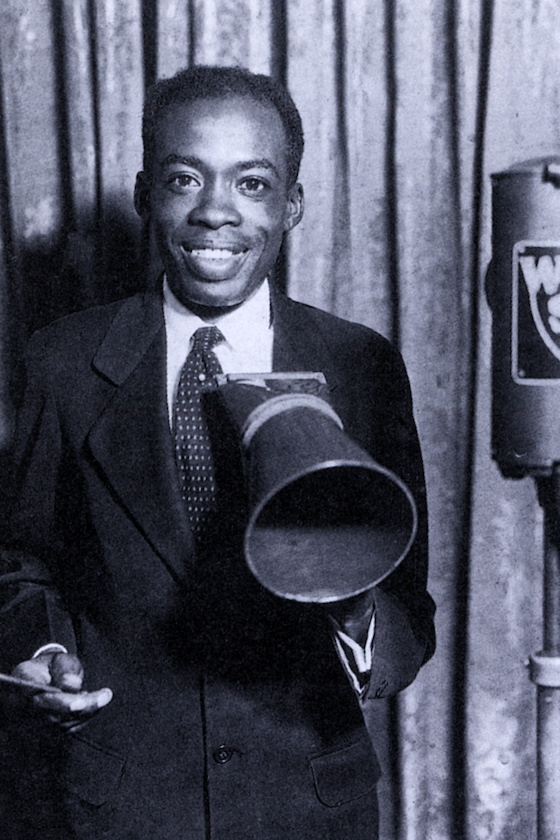
GAB Archive/Redferns
DeFord Bailey was a pioneer not only for Black country singers but also for all country musicians. A world-class harmonica player, Bailey has the distinct honor of being the first country artist to be introduced on the Grand Ole Opry. Not just the first Black country performer, the first ever country musician. Yes, the first performer on the show was a Black man, which shaped the history of country music. Opry founder George Hay made the announcement live on air on Dec. 10, 1927, when the show officially adopted its name, changing it from "WSM Barn Dance," which had been used since it started in 1925.
Bailey would go on to play the Opry regularly as well as tour with country music greats like Bill Monroe and Roy Acuff through 1941. Unfortunately, a conflict with his recording rights essentially ended his career that year. A licensing conflict between two organizations made it so he could not perform his most well-known songs on air, leading to his sudden departure.
A rare appearance in 1974 launched the Opry's "Old Timers' Show," and Bailey received one of country music's highest honors when he was inducted into the Country Music Hall of Fame in 2005 — 23 years after he passed away.
—Jeremy Burchard
Charley Pride
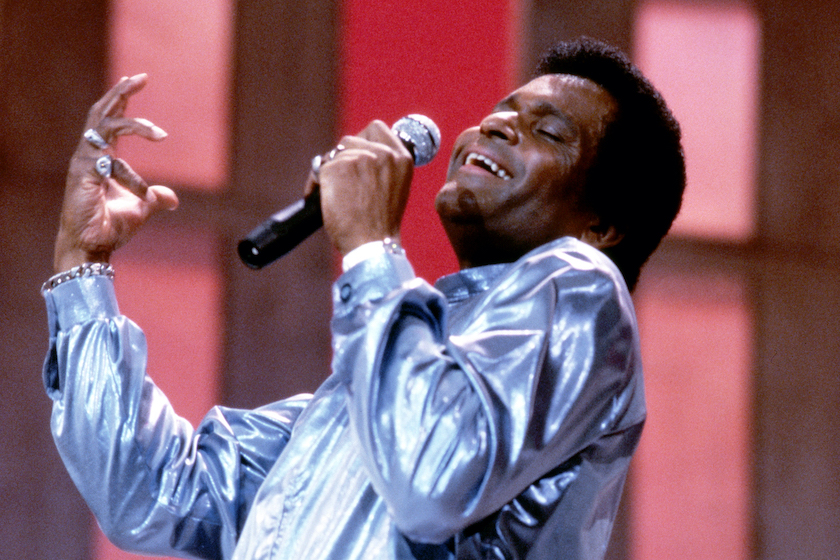
Silver Screen Collection/Getty Images
A definitive legend, Charley Pride embodies everything there is to love about country music. With talent matched only by his resiliency and character, Pride rose to fame at the height of racial tension in America and eventually earned 39 No. 1 singles, selling over 70 million albums — making him RCA's best-selling artist since Elvis Presley.
But it's not just about sales, Grammy Awards, Entertainer of the Year awards or "first Black country singer" moments, though Pride certainly has his share of those. What makes Pride such a huge influence on country music is the way he changed perceptions of what it meant to be "country."
Most listeners and radio programmers didn't realize they were listening to a Black man when Pride first hit the radio in the '60s. That was partially due to the absence of a picture on his promotional singles.
When they did learn, it didn't matter. Pride's smooth voice helped ease the tensions of the working class struggles which were covered in his music. Furthermore, his history as a hard-working former baseball player who got his start singing before the games was endearing to listeners. He trampled the prejudices of some of his biggest fans by merely being who he was.
— JB
Ray Charles
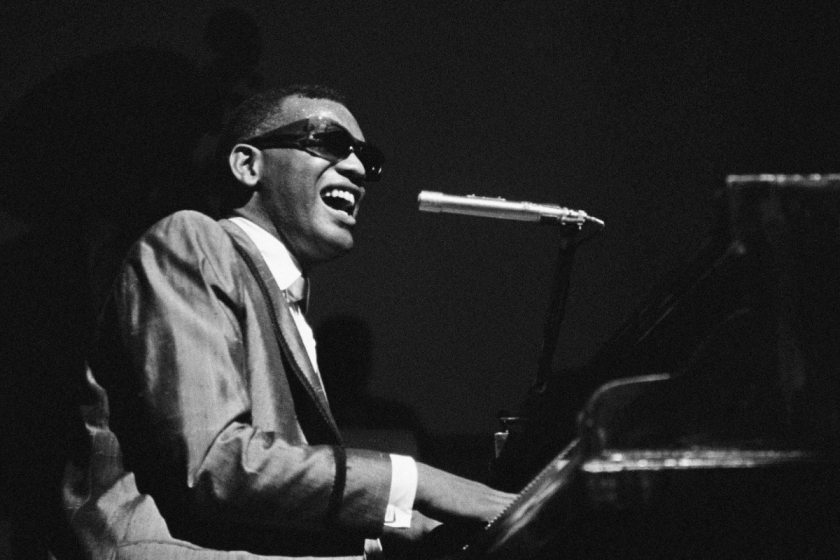
ASSOCIES/Gamma-Rapho via Getty Images
Country Music Hall of Famer Ray Charles is an artist whose music completely eclipses genre boundaries. And while, like Tina Turner, he's not known traditionally as a country singer, Charles stepped into the country music spotlight several times and left a lasting impact.
For starters, one of Charles' first gigs as a musician in the '40s was playing with a group of country musicians called The Florida Playboys. He began recording country songs in the late '50s, and in 1962 he released Modern Sounds in Country and Western Music.
The album was one of many of Charles' homages to his love for country music (he released another volume and several country singles throughout his career) and is widely considered to be Charles' greatest album and one of the most important country LPs of all time.
Charles' signature arrangements, complete with spunky piano licks and big band punctuation, helped introduce country music to an entirely new generation that had never heard some of the genre's biggest hits before. Thanks to Charles, country music's popularity exploded. He paved the way for fledgling artists such as Merle Haggard to become bonafide American superstars.
Ray Charles also stood up against racism. In 1961, he famously canceled a performance in Augusta, Ga., when he learned that the Black audience would be segregated upstairs in the venue.
—JB
Linda Martell
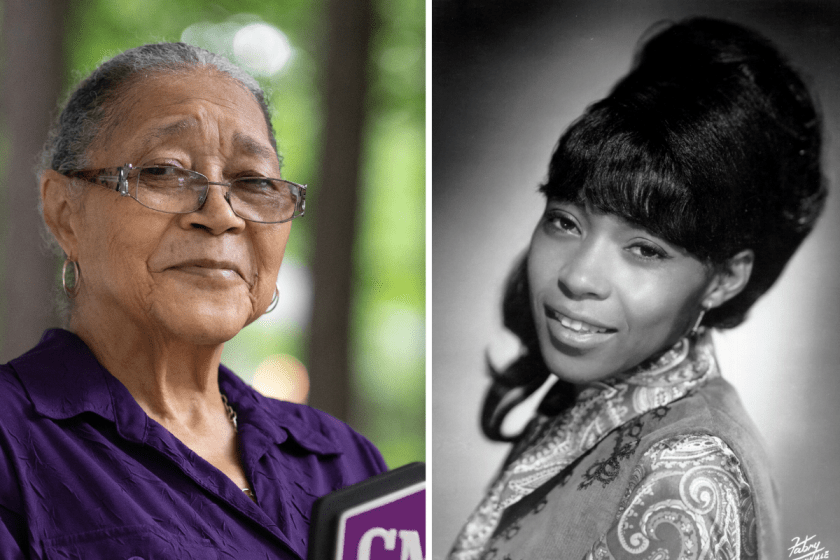
Sean Rayford/2021 CMT Awards/Getty Images for CMT and Michael Ochs Archives/Getty Images
Linda Martell was the first Black woman to score a modicum of success in the country music space. Her 1970 album Color Me Country entered country's Top 40, with "Color Him Father" and a pre-Freddy Fender version of "Before the Next Teardrop Falls" reaching the same heights on the singles chart. Sadly, a raw deal with Shelby Singleton's Plantation Records and music business misdeeds by other parties halted Martell's career progress. As the conversation about the past, present and future of Black country artists has progressed in recent years, Martell has gotten her due as a trailblazer while exposing her stellar music to a broader audience than ever before. Renewed interest in Martell brought us a Record Store Day reissue of Color Me Country in 2022 as well as news of a forthcoming documentary on the singer's life that's being made by her granddaughter.
— Addie Moore
Stoney Edwards
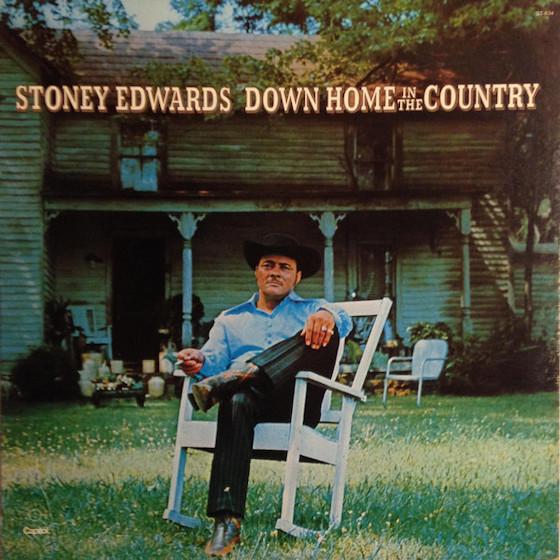
One of the great "what ifs" in country music lore, Stoney Edwards, had it all. His commanding honky-tonk vocal delivery and catalog of captivating material scored a respectable 15 charting singles between 1970-1980 — including Top 20 entries "She's My Rock," which predates George Jones' recording by over a decade, and "Mississippi You're on My Mind." Other notable songs — from Top 40 country hit "Hank and Lefty Raised My Country Soul" to album deep cuts such as "Odd Job Dollar-Bill Man" — capture the nostalgic sentiments that've always been at the heart of tradition-honoring country music. Yet he's gone down as a hidden gem, not as one of the most gifted and consistent alternatives to '70s pop-country. Hopefully, 2022 reissues of Edwards' mainstream output reframes that narrative.
— AM
Howdy Glenn
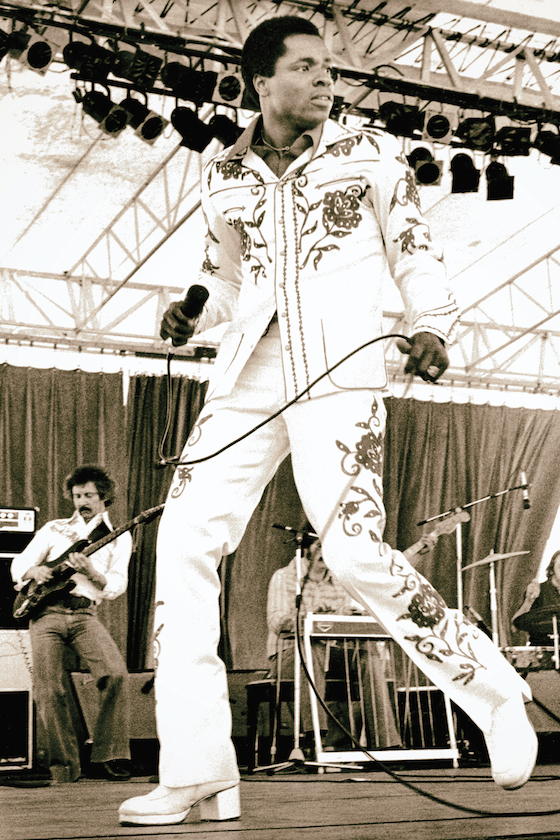
Courtesy of Omnivore Recordings
Howdy Glenn might be the least recognizable name on this list, with many collectors of records by such obscure Black country artists as La Melle Prince, Ruby Falls, G. Hawl Jones and Virginia Kirby just now learning about his music and backstory. However, he had a close, albeit brief, brush with success as a mainstream recording artist. A firefighter from California, Glenn had a Warner Bros. output that earned him an ACM Top New Male Vocalist nomination, placing him in the same company as future household names Vern Gosdin, Mel McDaniel and that year's winner, Eddie Rabbitt. Like others on this list, lack of label support tanked Glenn's shot at stardom. Fortunately, a career-spanning 2023 compilation from Omnivore Recordings pointed more ears to "I Can Almost See Houston" and other should-be classics.
— AM
The Pointer Sisters
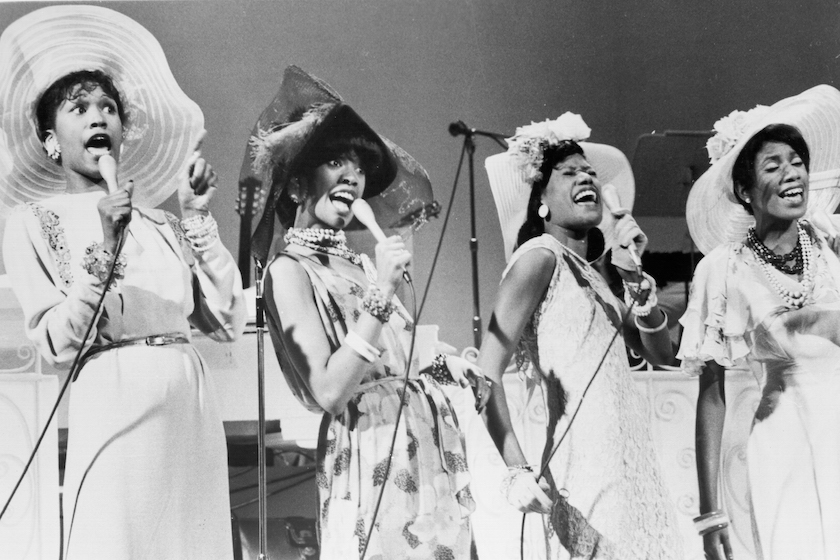
Michael Ochs Archives/Getty Images
The Pointer Sisters' sound spanned different pop subgenres over time, from Bette Midler-style kitsch to chart-busting R&B. In 1974, the song "Fairytale" became an unlikely Top 15 country hit. A Grand Ole Opry appearance, the first by a Black vocal group, followed despite a hate-fueled protest outside the Ryman Auditorium. "Fairytale" went on to win the 1974 Grammy Award for Best Country Vocal Performance by a Duo or Group. They remain the only Black women to earn a Grammy in a country category.
Member Anita Pointer returned to the country charts in 1986 when Earl Thomas Conley duet "Too Many Times" reached No. 2.
— AM
Tina Turner
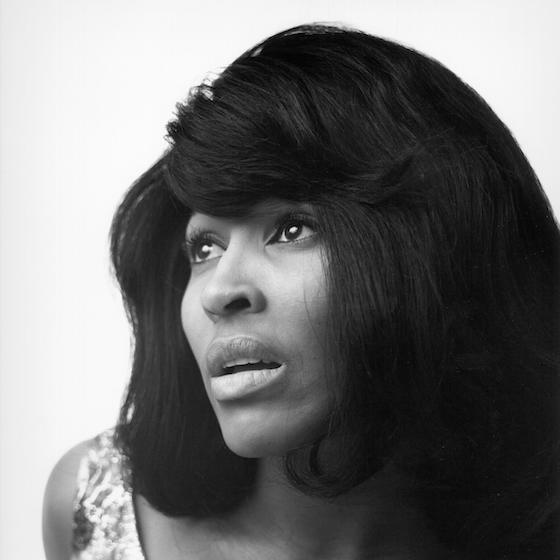
Michael Ochs Archives/Getty Images
She may not be known traditionally as a country artist, but Tennessee native and American icon Tina Turner's stint in the genre was huge both for her and for future generations of artists.
In 1975, only a year before leaving her abusive husband Ike Turner, Tina stepped out on her own to release her first-ever solo album. A collection of Turner's version of some of her favorite country songs, Tina Turns the Country On! earned her a Grammy nomination (albeit in the R&B category, thanks to the awards show's old way of categorizing music).
And while she didn't gain breakthrough solo success until the '80s, Turner's stint as a Black country singer inspired a whole world of musicians to cross over. Her booming personality and vocal delivery also inspired a new wave of big-voiced country singers including Reba McEntire to take control of the stage instead of sticking to the reserved demeanor seen in most country artists at the time.
To this day, her hometown celebrates her country music roots annually with its Tina Turner Heritage Days.
Quite a few Black artists not initially associated with country music cut similar albums over time, with examples ranging from The Supremes to Janet Jackson.
— JB
Frankie Staton
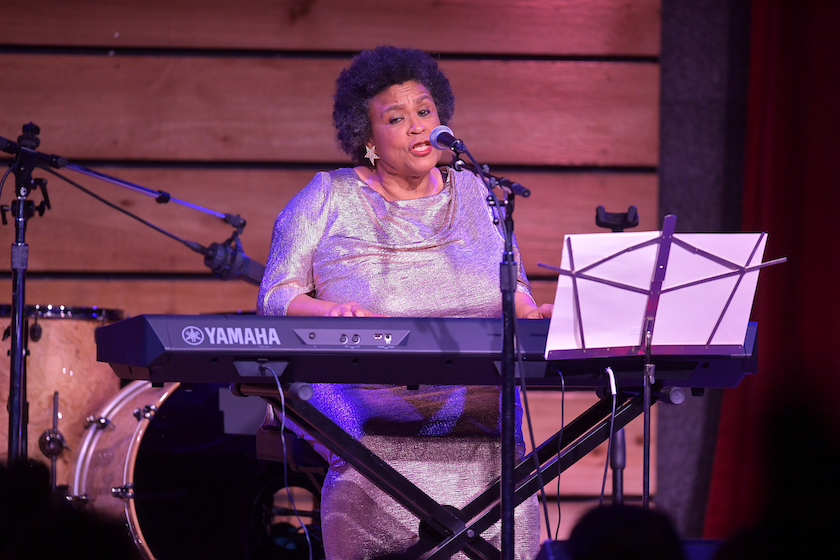
Jason Davis/Getty Images for CMT
Upon arriving in Nashville in 1981, proverbial and literal doors began slamming in the face of Frankie Staton. It wasn't due to a lack of talent, as her skill as a songwriter, singer and keyboardist should've been undeniable. Staton persisted, writing and performing songs inspired by her love of Loretta Lynn and Don Williams in a town where power brokers deemed her unmarketable. Along the way, she's fought hard to create opportunities for others, be it through her role in the formation of the Black Country Music Association (BCMA) in the '90s or her involvement in the Black Opry's current do-it-yourself initiatives. In February 2023, Staton's personal resolve and prayers paid off with a long-overdue debut on the Grand Ole Opry stage.
— AM
Aaron Neville
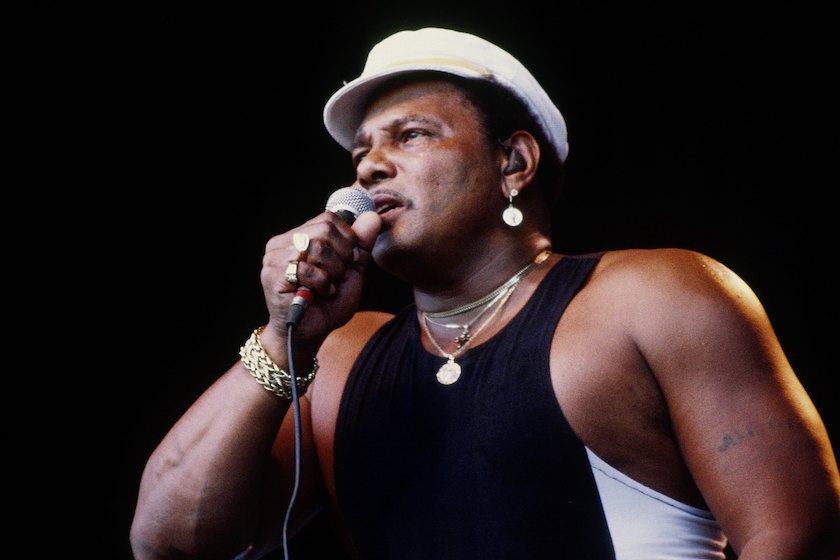
Larry Hulst/Michael Ochs Archives/Getty Images
Aaron Neville was born in New Orleans and grew up around the Southern and Creole influences of Louisiana. He started off singing with The Neville Brothers but eventually had a solo career. Neville's high and smooth voice lends itself well to R&B, but the singer never limited himself to one genre.
One of Neville's most notable collaborations with a prominent country singer wasn't even for a country song. His work with Linda Ronstadt in 1989 for the Grammy Award-winning song "Don't Know Much" reached No. 2 that year on the Billboard Hot 100 chart.
In 1993, he came out with "The Grand Tour," an undeniably country song filled with fiddles and lonely lamentations. The next year, Neville recorded the Patsy Cline classic "I Fall to Pieces" as a duet with Trisha Yearwood.
Neville's versatility enabled him to swing easily between genres, allowing others, such as Darius Rucker, to follow in his footsteps years later.
— JB
Cleve Francis
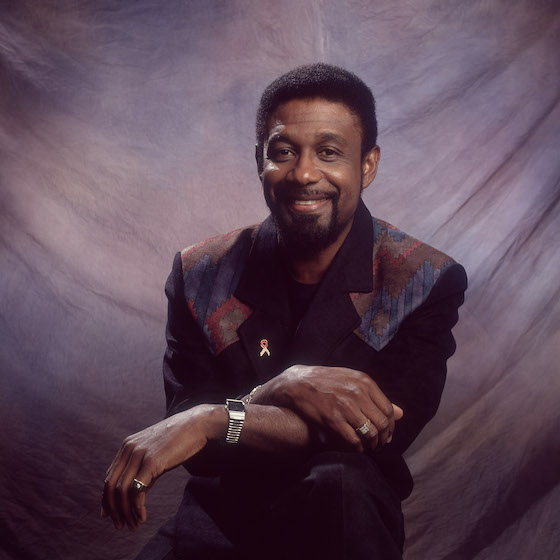
Paul Natkin/Getty Images
Though the '90s get rightfully praised as a golden age for white women in big-time country music, it's an era marred by a lack of wider diversity — though, certainly, we've still got a long way to go when it comes to inclusion. Indeed, when Cleve Francis signed with Liberty Records in 1992, he was the only Black artist on a major country label. A singer-songwriter since the '60s and a cardiologist by trade, Francis was a polished performer, as shown by the strength of romantic ballad and signature song "Love Light." Francis used his short-lived Nashville platform to join Staton as a leader of the BCMA.
— AM
Rissi Palmer
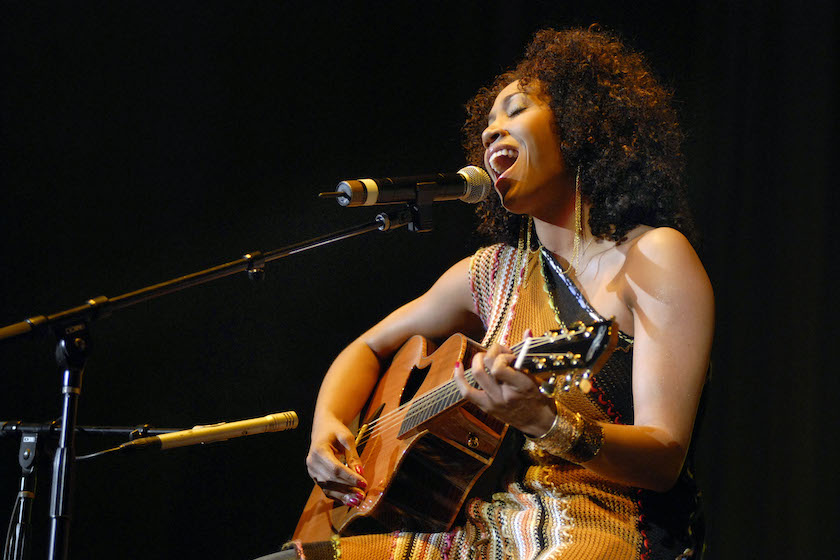
Frank Mullen/WireImage
Though she's a singer-songwriter and live performer of the first order, Rissi Palmer's greatest contribution to country music came through a different medium than her music. In 2020, she founded Apple Music Country's "Color Me Country Radio with Rissi Palmer." Her radio show has proved to be an invaluable resource for Black country and Americana artists, both rising acts and overlooked legends like Martell, when it comes to broader — and well-earned — exposure. Palmer never stopped making music after the chart success of 2007's "Country Girl," so the show also signal-boosts her own work.
— AM
Cowboy Troy
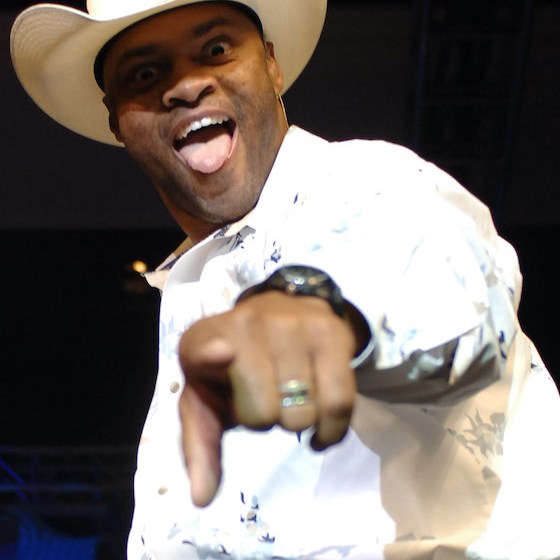
M. Caulfield/WireImage for Bragman Nyman Cafarelli
Some of this century's best-selling country singers owe the genesis of their biggest hits to Cowboy Troy. How so? Well, he was doing the whole "hick-hop" thing years before acts such as Jason Aldean ("Dirt Road Anthem"), Luke Bryan ("That's My Kind of Night") and Florida Georgia Line ("This Is How We Roll") cashed in on it.
What separates Troy Lee Coleman III from many of his peers is that he was always making music that fused country twang with rock music energy and hip-hop lyric schemes. Unlike artists who saw their stars rise with a hick-hop hit or two, it was never just a fad for Cowboy Troy, who started in 2001.
The Texan grew up in Dallas and graduated from the University of Texas at Austin. He had success with his major label debut, 2005's Loco Motive, which peaked at No. 2 on the album charts. From there, Troy became a fixture on television, co-hosting and appearing on multiple shows, from "Nashville Star" to "Dancing With the Stars."
He's one of the original members of Big & Rich's "MuzikMafia," which also saw success before the 2010s. But Troy's influence on the scene can ultimately be heard in the hits that launched other (notably white) artists to sold-out world tour statuses.
— JB
Darius Rucker
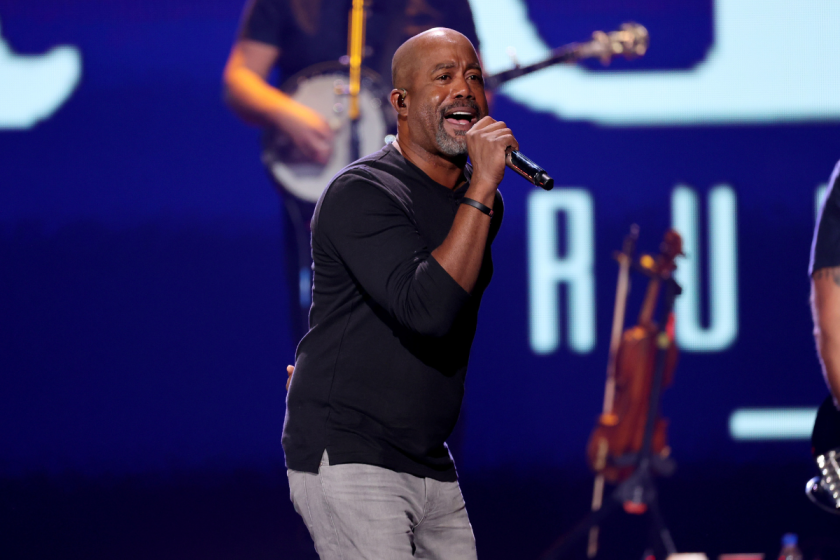
Photo by Kevin Winter/Getty Images for iHeartMedia
Darius Rucker is, in many ways, the new torchbearer for country artists who don't fall in line with the expected "white Southerner" trope. Though Rucker's solo career as a country artist only dates back to 2008, his influence and success have long been undeniable.
As a founding member and primary songwriter for soft rock band Hootie & The Blowfish (contrary to popular belief, the name was a combination of nicknames, and Rucker was not "Hootie"), Rucker co-wrote the 16th best-selling album of all time in Cracked Rear View. He always described his sound as more country-leaning and introduces the classic hit "Let Her Cry" as the first country song he ever wrote.
When Rucker — who is originally from South Carolina — first went solo, execs tried to get him to release an R&B record, which received minimal fanfare. However, when Rucker got his chance to make the music he felt most at home making, 2008's Learn To Live was born. The album led to three No. 1 country hits, including "Don't Think I Don't Think About It" and "Alright."
It also laid the groundwork for his second record, Charleston, SC 1966. Named in homage to one of his heroes, Radney Foster (whose Del Rio, TX 1959 is widely considered one of the most excellent country albums of all time), the sophomore effort cemented Rucker as a mainstay in country music. He'd eventually go on to record one of the most-played country songs ever, his version of "Wagon Wheel."
All the while, Rucker has been received as a masterful songwriter with a genuine honesty in his delivery and a sound that is both uniquely his own and respectful of the most rooted country traditions. Rucker is not merely an influential Black country artist; he's one of the best songwriters in modern country music.
And while Rucker downplays the role of color in his career (like Pride), his success is essential. As long as there are gatekeepers in country music, there will be barriers to truly talented artists getting the support they deserve. And no matter the record-setting careers of artists like Pride and Rucker, suits are nervous to break from stereotypes.
— JB
Jake Blount

Tadin Brown
Black influence on country music predates Bailey's place in Grand Ole Opry lore, considering the African origins of the banjo and the roles of Black artists in proto-country string bands. An intellectual as much as an artist, banjo player and folk singer-songwriter Jake Blount has joined collaborator Rhiannon Giddens in framing these and other historic facts in a modern context. In 2022, Blount's creative genius was on full display throughout the concept album A New Faith.
— AM
Mickey Guyton
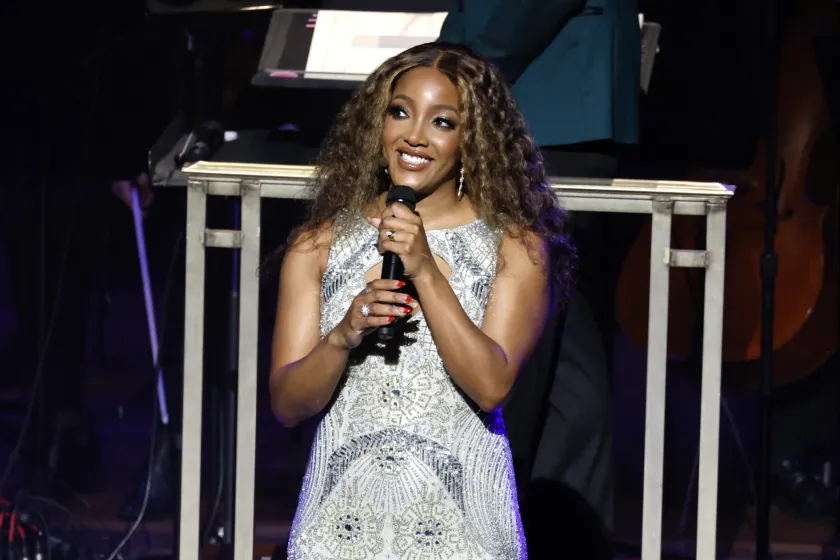
Jason Kempin/Getty Images
Mickey Guyton has made a strong mark not only with her music and powerful voice, but also with her outspokenness. The singer made her debut in 2015 with soaring breakup ballad "Better Than You Left Me," co-written by Guyton, Jennifer Hanson, Jenn Schott and Nathan Chapman. The song was included on her self-titled EP, released in 2015, which also included a memorable tune called "Why Baby Why." Guyton seemed to truly tune into her artistry in 2020 when, after the death of George Floyd, she began releasing music specifically about her experience as a Black woman. One of the most obvious examples of this is her song "Black Like Me," which details her experiences with racism since childhood. Her tune "Love My Hair" celebrates who she is. Guyton has been one of the leaders in the fight for equality of Black artists in country music, and she has also been outspoken as a woman in country music. Her song "What Are You Gonna Tell Her?" discusses gender inequality in a powerful way.
— Grace Lenehan Vaughn
Kane Brown
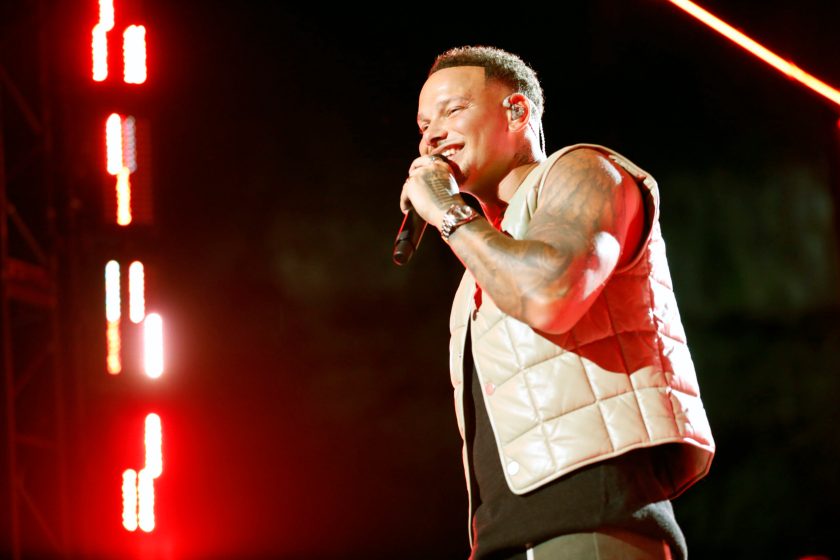
Monica Schipper/Getty Images for MTV/Paramount Global
Kane Brown is one of the most successful male country artists to debut within the last decade. Like Guyton, he also made his major label debut in 2015, with his single "Used to Love You Sober," which landed in the Top 15. Things have only looked up for Brown since then, as he has released many multi-platinum hits through the years such as "What Ifs" featuring Lauren Alaina, "Heaven," "Good as You," "Homesick" and more. In 2023, Brown found a hit with "Thank God," which is a duet with his wife, Katelyn Brown. Brown has also been open about his experience growing up biracial with Black and Cherokee roots. The singer shared in a 2018 interview with People that, while growing up with his white mother in Georgia, he believed he was white. It wasn't until he was called a racial slur when he was young that the realities of racism began to make themselves known. Brown has served as unifier in country music, releasing his inclusive song "Worldwide Beautiful" in 2020 amid racial strife in the country.
— GV
The War and Treaty
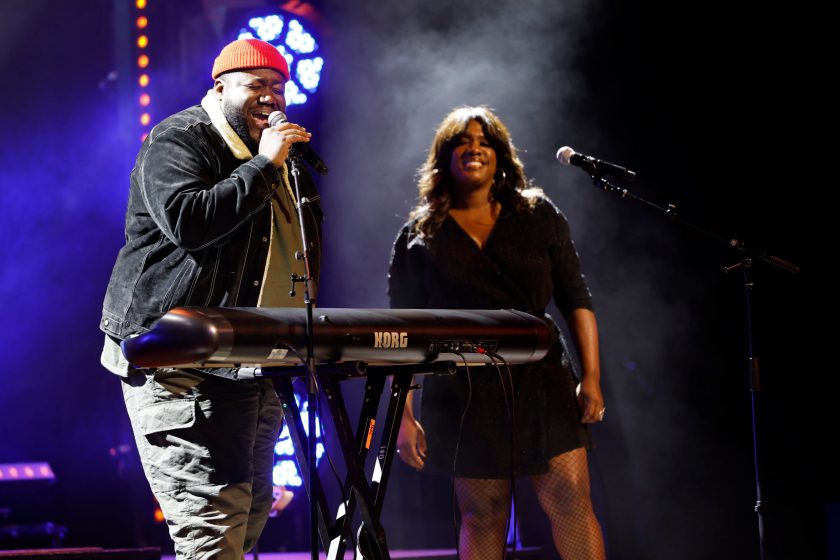
Jason Kempin/Getty Images
Husband-and-wife duo The War and Treaty have been making their way in country music for the past few years. The duo, composed of Michael Trotter Jr. and Tanya Trotter, debuted their powerful brand of blues and soul-infused country music in 2017 with their EP Down to the River. They showcased more of their heart-thumping, soulful music with their 2018 album Healing Tide and, later, with Hearts Town. They made a splash in mainstream country music in April 2021 when they joined Dierks Bentley at the ACM Awards for a bluegrass version of U2's "Pride (In the Name of Love)." The duo committed fully to the country music space in May 2022 when they signed a record deal with Universal Music Group Nashville. They also appeared on the CMA Awards in November 2022 with Brothers Osborne. They will return with a brand new album dubbed Lovers' Game on March 10; and they've already shared a taste of the album with "Ain't No Harmin' Me," which continues to showcase the duo's strong vocals and unique brand of music. — GV
BRELAND
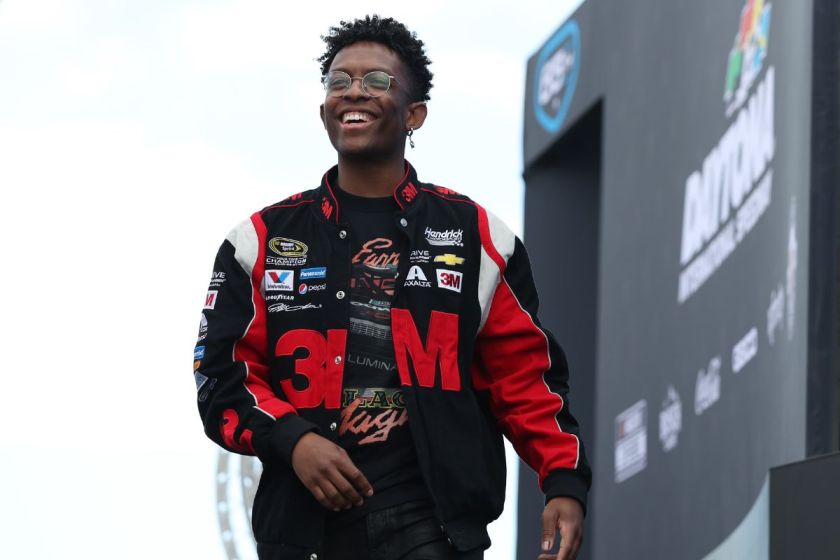
Adam Glanzman/Getty Images
BRELAND is blazing his own trail in country music. The New Jersey native had an explosive entrance into the genre when his country-trap tune "My Truck" earned viral fame on social media. After its success, he launched his brand of country music that he dubs "cross country" — a mix of country, rap, R&B and more. BRELAND's list of collaborators reads like a who's who of country music, as he has recorded with the likes of Mickey Guyton, Dierks Bentley, Keith Urban, Thomas Rhett, Lady A and more. BRELAND's debut album, Cross Country, was released in September 2022 to much acclaim, and it officially introduced his unique style. In an interview with The Associated Press, BRELAND shared that he aims to create a new branch of the genre for "country music listeners under 30 who believe Black Lives Matter."
— GV
Brittney Spencer
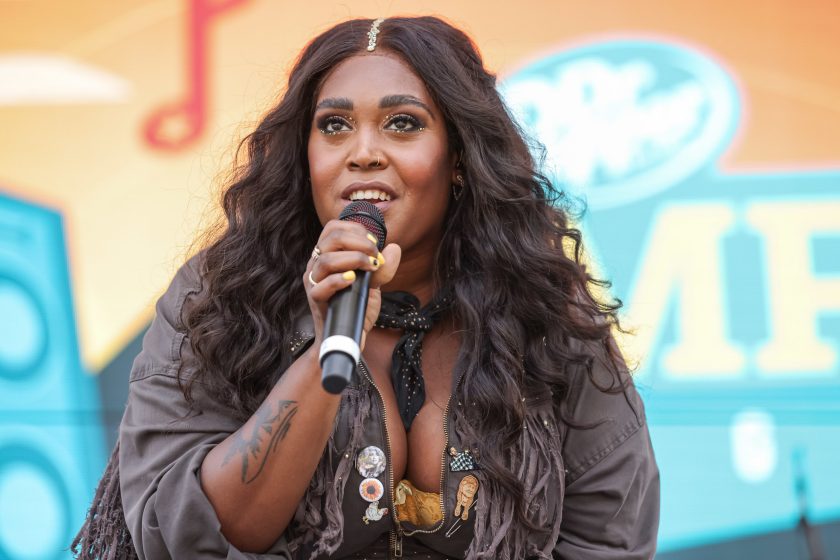
Michael Hickey/Getty Images
Brittney Spencer is a country singer-songwriter who has been pursuing a music career in Nashville since 2013. She attended Middle Tennessee State University upon moving to Music City, and she worked her way up in the industry as a background singer for artists including Carrie Underwood. She earned mainstream attention in 2020 when she shared a cover of "Crowded Table" by the Highwomen, an all-woman group composed of Brandi Carlile, Maren Morris, Natalie Hemby and Amanda Shires. The video received thousands of views, and it even garnered the attention of the band. Since then, Spencer has been showing the world her brand of country music featuring thoughtful, well-written songs. She released her Compassion EP in 2020, and she made headlines with her vulnerable song "Sober and Skinny" in 2021. Spencer has toured with and gained support from many artists in the industry, including Morris, Brett Eldredge, Mickey Guyton and others.
— GV
Lil Nas X
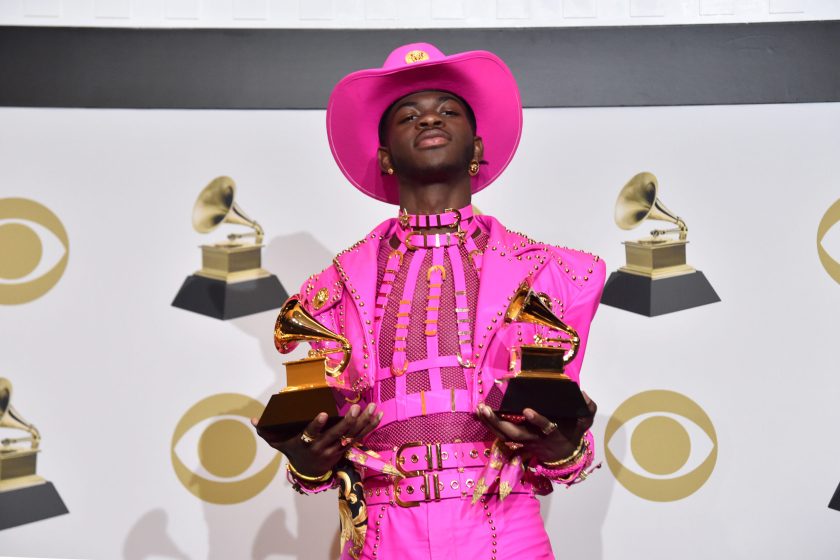
Alberto E. Rodriguez/Getty Images for The Recording Academy
Lil Nas X rode onto the music scene decked out with a "cowboy hat from Gucci" and Wrangler jeans to deliver (with Billy Cyrus in tow) a genre-blending smash widely labeled as country-trap. Though "Old Town Road" made headlines when it was removed from Billboard's Hot Country Songs chart for not embracing "enough elements of today's country music," no decision by corporate suits could ever slow down the Yee Haw Agenda. And Lil Nas X's tale of a lone rider strolling into town (whether on a horse or a tractor) is steeped in country storytelling and imagery.
Though "Old Town Road" undoubtedly made him a household name, Lil Nas X is no one-hit wonder. He's a two-time Grammy winner, and his critically acclaimed debut studio album Montero spawned the hits "Montero (Call Me By Your Name)" and "Industry Baby."
— Bobbie Jean Sawyer
Allison Russell
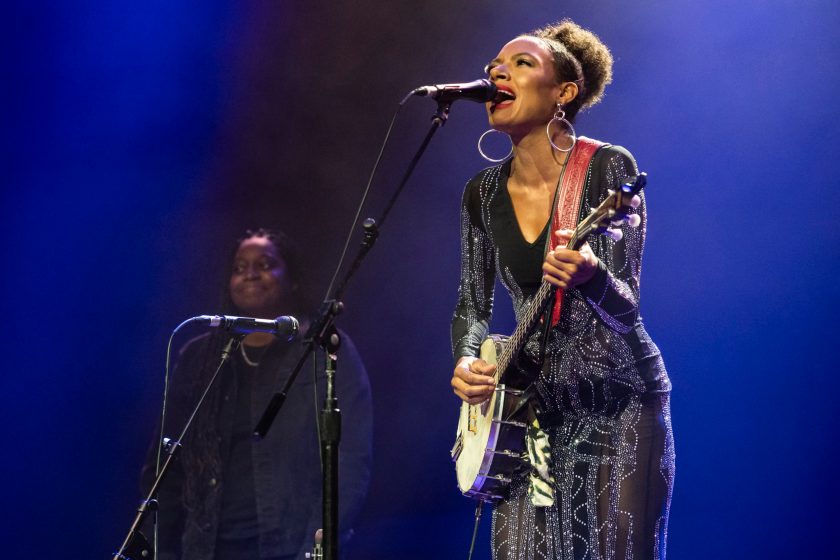
Photo by Erika Goldring/Getty Images
After years spent in such folk supergroups as Po' Girl and Our Native Daughters, Allison Russell went solo with 2021's Outside Child. Across one of the best albums of the young decade, Russell compartmentalizes past trauma and abuse from her childhood. When it comes to three or more chords and the truth, few have been more brutally and vulnerably honest en route to multiple Grammy nominations. Plus, she was gifted with one of the most captivating singing voices in any genre.
— AM
Amythyst Kiah
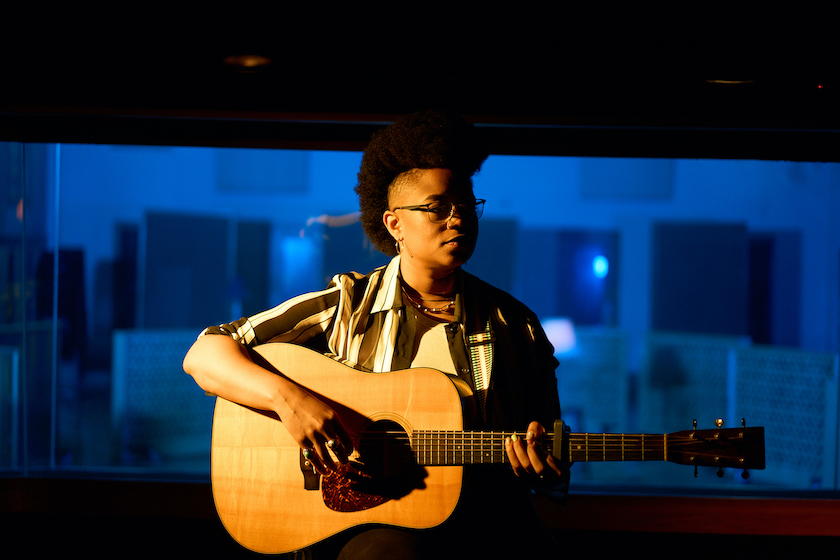
Joshua Kissi
Tennessee-born singer, songwriter, guitarist and banjoist Amythyst Kiah describes her style as "Southern Gothic." The phrase fits the vivid, layered storytelling that drives such modern folk classics as "Wild Turkey" and Grammy nominee "Black Myself." A true troubadour, Kiah tells cold, hard truths through folk songs that, though instantly timeless, reflect the current experiences of Black Americans. As an Americana notable should, Kiah dabbles in different genres, from old-school country ("Ballad of the Lost") to sunshiny folk-pop ("Soapbox").
— AM
Blanco Brown
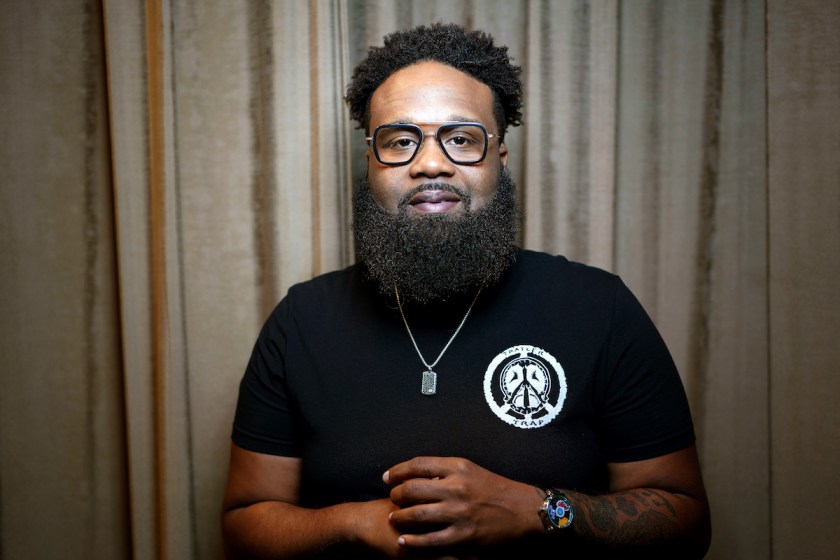
Photo by Donn Jones/Invision/AP
As the popularity of video-sharing app TikTok began rising around 2019 and 2020, many new artists began seeing viral success in their music career. One artist benefiting from this was Blanco Brown, who made headlines in 2019 with his breakout country-trap tune, "The Git Up." Upon the song's May 2019 release, Brown shared a line dance to go along with the tune, which caught fire on TikTok, where users often make videos of dances that go along with certain trending hits. The song was also a worldwide radio success, landing at No. 1 on the Hot Country Songs chart. Brown saw much support from his fellow artists as he embarked on his country career, and he notched another multi-platinum country hit when he collaborated with Parmalee on 2019's "Just the Way."
— GV
Chapel Hart
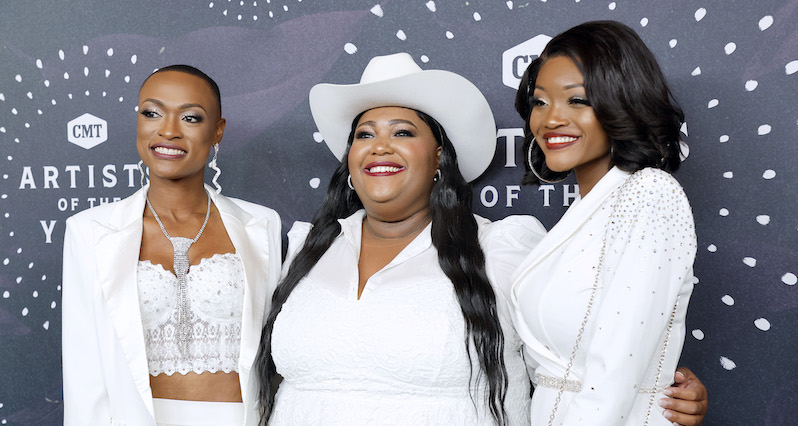
Jason Kempin/Getty Images for CMT
Chapel Hart put in the work long before gaining wider notoriety on "America's Got Talent" or debuting on the Grand Ole Opry stage. For years, siblings Danica Hart and Devynn Hart and their cousin Trea Swindle have brought a fresh take on classic country to a honky-tonk near you. The trio's sound is grounded in the past — influences range from '90s rock to Loretta Lynn — without coming across as outdated. For a taste of this, press play on Dolly Parton answer song "You Can Have Him Jolene."
— AM
Julie Williams
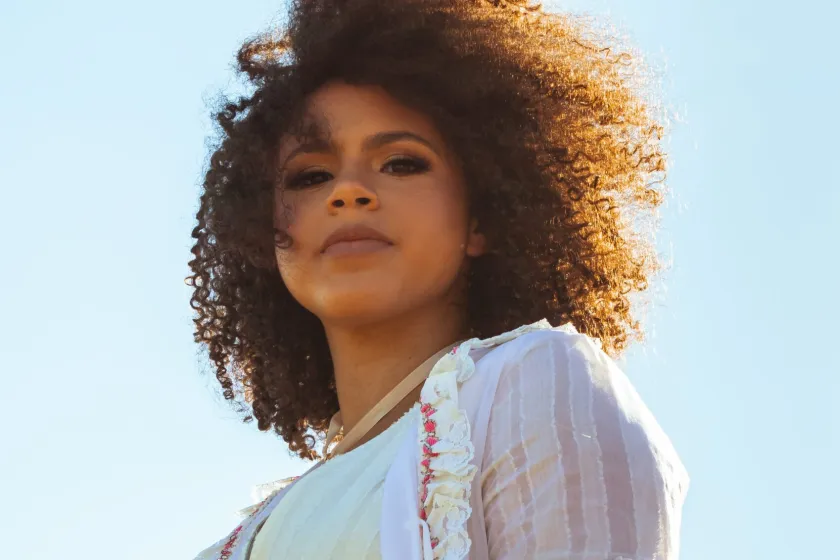
Mackenzie Ryan
Julie Williams arrived in Nashville in 2019 following her studies at Duke University. The Florida native's songs about the Southern experience first found an audience through Song Suffragettes, Nashville's weekly songwriters-in-the-round event for women. Two years later, Williams made her presence in Music City known with her song "Southern Curls." One of the artist to gain exposure from the Black Opry's tours, Williams was part of the CMT Next Women of Country's class of 2023.
— AM
Rhiannon Giddens
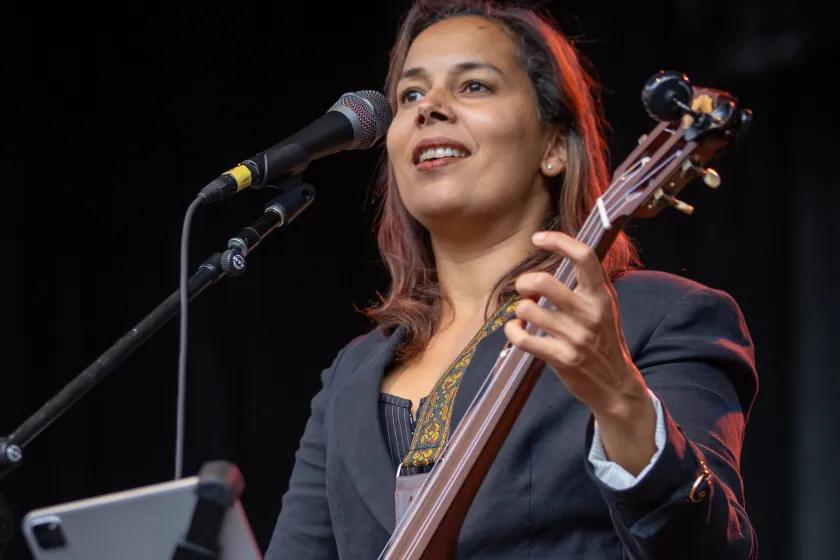
Douglas Mason/Getty Images
Ever since her breakthrough as a member of Grammy award-winning group the Carolina Chocolate Drops, Rhiannon Giddens has been one of the most visible and vital purveyors of various strands of folk music. Along the way, the acclaimed multi-instrumentalist has been invaluable in educating country fans on the history of the banjo, which was first brought to America by enslaved people taken from Africa. Beyond that, she's been part of some amazing records, such as her 2017 solo album Freedom Highway.
— AM
Reyna Roberts
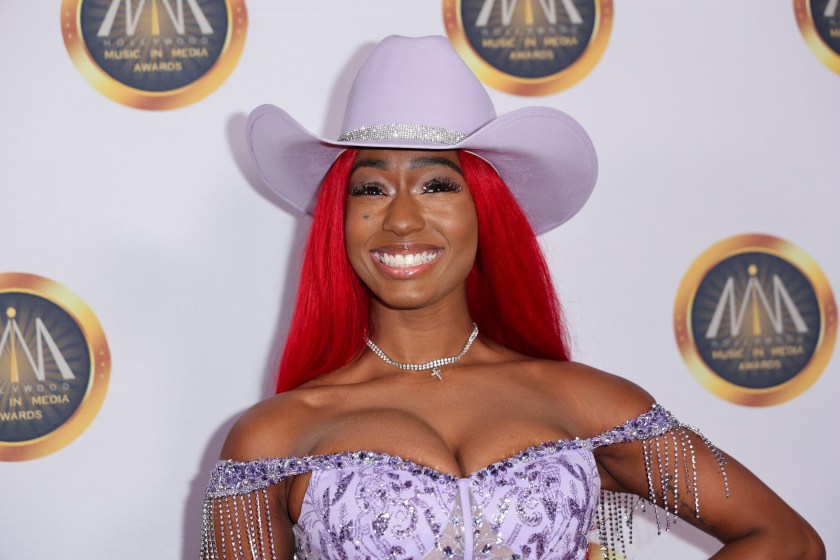
Momodu Mansaray/Getty Images
One of the more electrifying performers to emerge this decade, Reyna Roberts' ongoing ascent proves the power of social media when it comes to getting your music heard. In June 2020, Mickey Guyton posted a video online of Roberts singing Carrie Underwood's "Drinking Alone," which got retweeted by Underwood herself. Roberts' defining song as a mainstream artist, "Stompin' Grounds," followed a month later. She's since made multiple appearances on "Monday Night Football" and enjoyed increasing TikTok exposure that's caught the eyes and ears of Reba McEntire.
— AM
Alice Randall
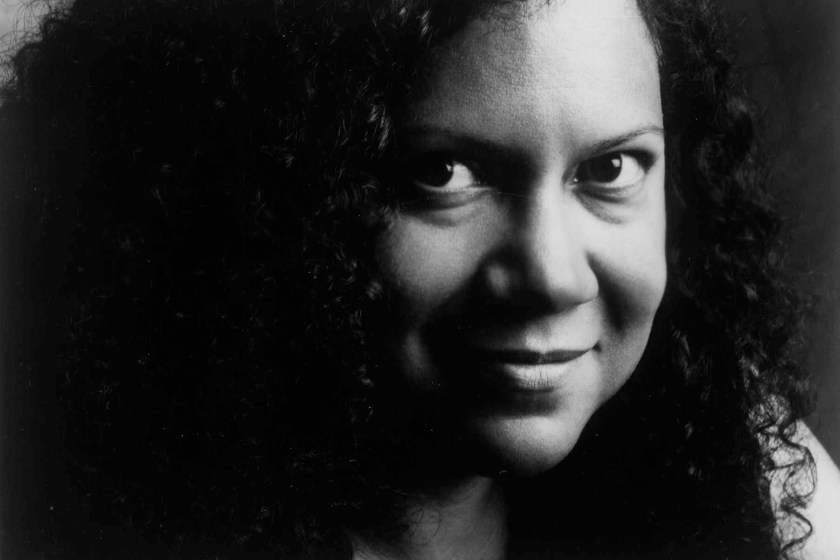
Getty Images
A renown songwriter as well as a New York Times best-selling author and an artist-in-residence and professor at Vanderbilt University in Nashville, Alice Randall is one of the true geniuses of country music. She co-wrote Trisha Yearwood No. 1 "XXXs and OOOs (An American Girl)" with Matraca Berg. Beyond that historic accomplishment for Black women in the country space, Randall wrote the script for the ACM award-winning music video for Reba McEntire's "Is There Life Out There." Randall is also the author of "My Black Country: A Journey Through Country Music's Black Past, Present and Future."
— AM
Valerie June
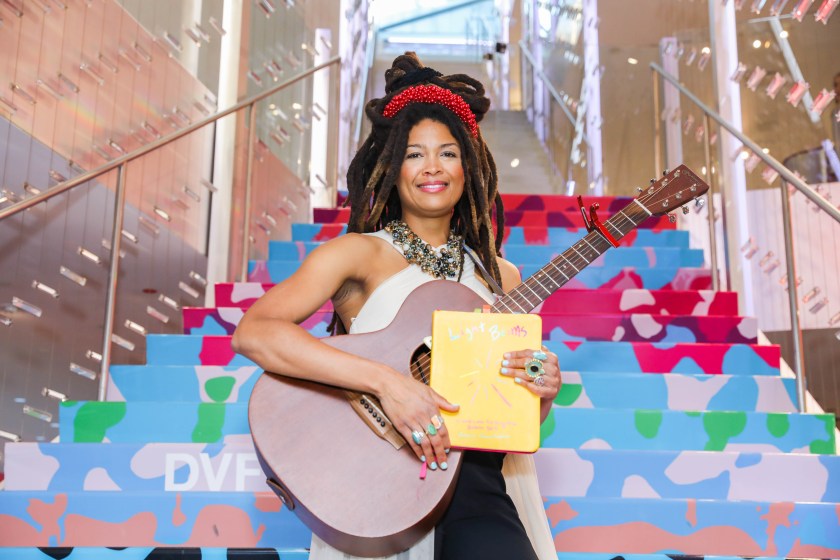
JP Yim/Getty Images for Girls Write Now
Native Tennessean Valerie June joins quite a few on this list in keeping Appalachian stories and influences near the forefront for country, folk and Americana listeners. Along the way, she's counted Dan Auerbach among her collaborators and Bob Dylan as a vocal supporter. Her 2021 album The Moon and Stars: Prescriptions for Dreamers began yet another cycle of positive press, culminating with a Grammy nomination (Best American Roots Song) for "Call Me a Fool," a collaboration with the Queen of Memphis Soul, Carla Thomas.
— AM
Adia Victoria
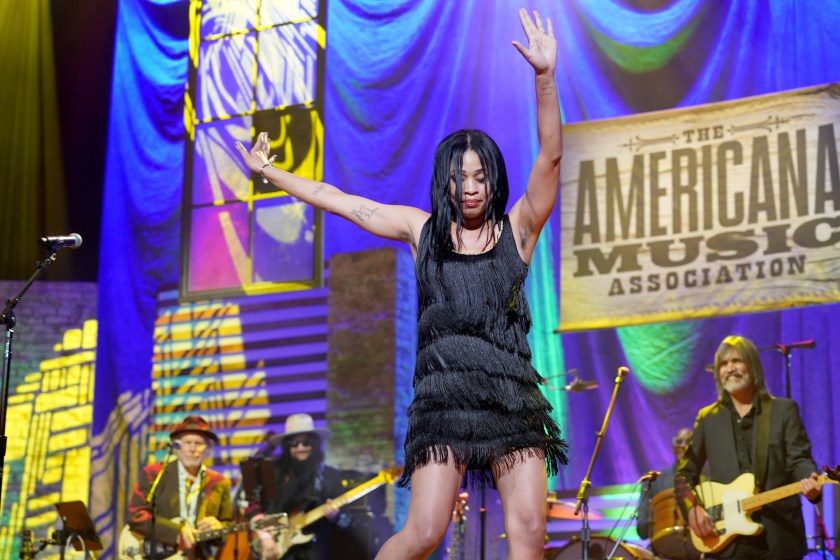
Erika Goldring/Getty Images for Americana Music Association
Adia Victoria has blended Southern Gothic storytelling with sonic cues from country, folk, punk rock and the blues across three stellar albums: Beyond the Bloodhounds (2016), Silences (2019) and A Southern Gothic (2021). Beyond being an imaginative recording artist and incredible live performer, Victoria's a highly regarded poet.
— AM
Dom Flemons
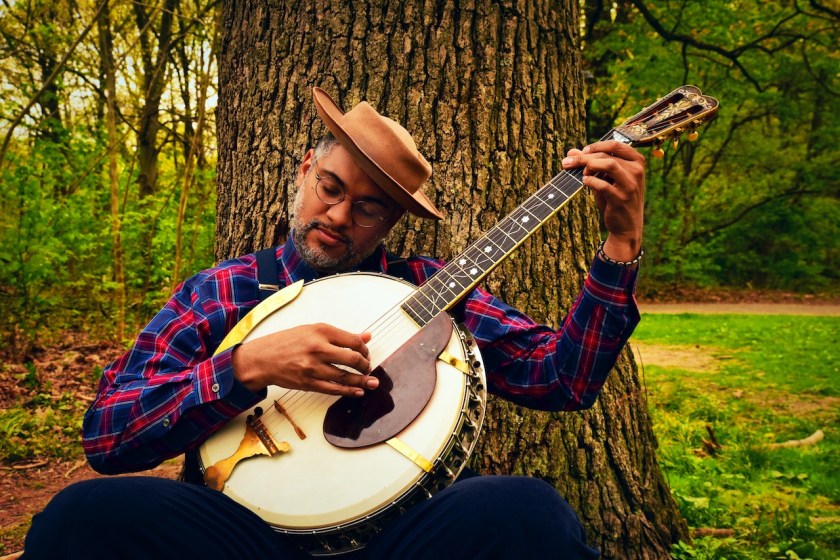
Shervin Lainez
Dom Flemons' influence expands beyond his impressive body of roots-inspired recordings and his clear gifts as a multi-instrumentalist who's skilled at everything from the banjo to rhythm bones. Billed as "the American Songster," Flemons deserves consideration as his generation's most impactful musicologist. Indeed, he's doing work as valuable as the irreplaceable contributions of the Seeger and Lomax families. He previously performed alongside fellow banjo-picking folklorist Rhiannon Giddens in the Carolina Chocolate Drops.
Willie Jones
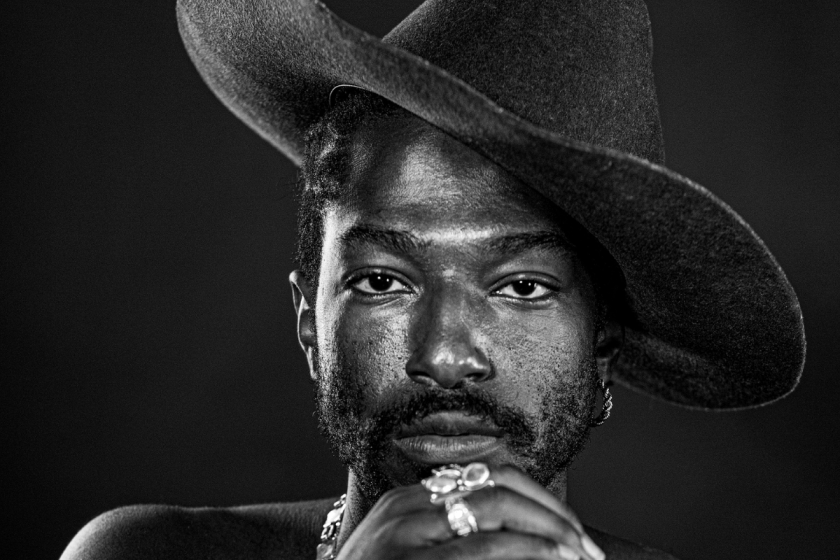
Courtesy of Shore Fire Media
Shreveport, La., native Willie Jones first pledged allegiance to country music as a contestant on the singing competition series "The X Factor." More recently, he's made an impact in Nashville while pushing the '70s concept of country soul and the '90s creation of country rap into the 21st century. His major label debut album, 2021's Right Now, brought us "American Dream," one of the most powerful songs — country or otherwise — from the perspective of a Black man living in our current socio-political climate.
— AM
Miko Marks
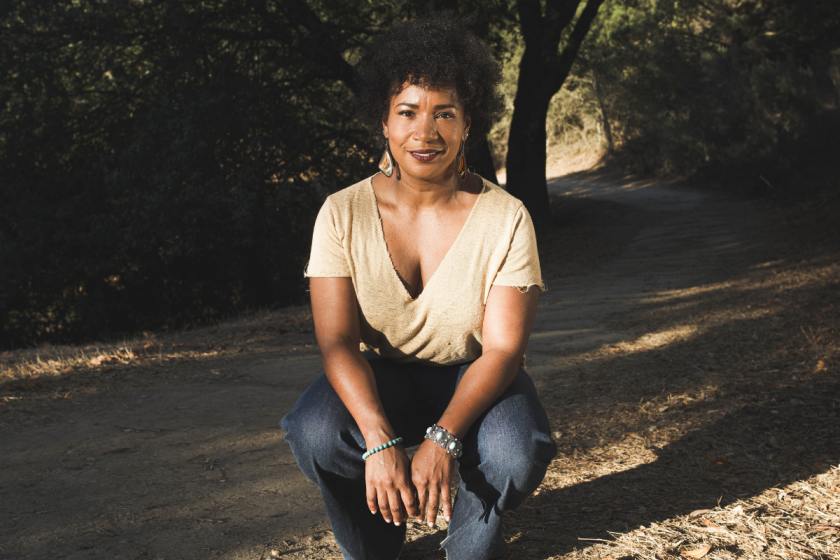
Beto Lopez, Mooncricket Films
Miko Marks' story is one of perseverance. Her earliest albums (2005's Freeway Bound and 2007's It Feels Good) were met with some acclaim from fans of neo-traditional country. Fourteen years after her prior album, Marks received well-earned attention for 2021's Our Country. Since then, she debuted on the Grand Ole Opry stage in 2022 and collaborated with the legendary Fisk Jubilee Singers in 2023.
— AM
Beyoncé
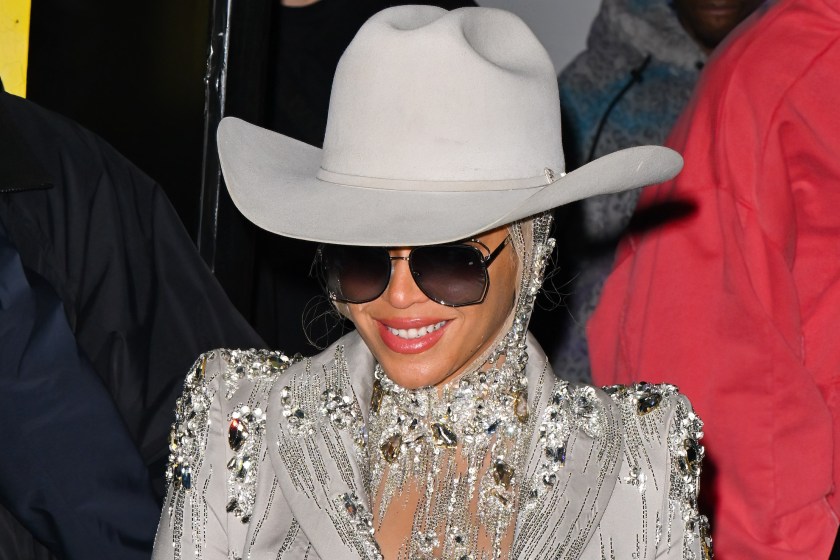
James Devaney/GC Images
Even before Beyoncé's elaborate announcement of her Act II album through a 2024 Super Bowl commercial for Verizon, the global pop icon would've deserved inclusion on our list. Her 2016 song "Daddy Lessons" fits country music traditions both instrumentally and as a story-song. Beyonce's performance with The Chicks at that same year's CMA Awards remains one of the more talked-about segments in recent history. Besides, Beyonce's a once-in-a-generation talent who truly transcends genre tags.
— AM
Editor's Note: This article was originally published in 2016. It was updated on Feb. 22, 2024.
READ MORE: Rissi Palmer on Telling Country Music's Hidden Stories:'It's the Music of All of Us'
